Emperor Peter III. Way to the throne
The most curious thing is that all the historians who describe the events of those years use the same sources. However, as if under hypnosis of the "Catherine tradition", most of them carefully choose from the memoirs and memoirs of contemporaries only facts that should confirm the established opinion about this Grand Duke and Emperor. Or they freely interpret in the same vein the facts testifying more likely in favor of Peter III. They treat other characters much more condescendingly. Here are some examples.
The French diplomat Claude Rühler in his Notes tells of a resourceful guard who says a senior official passing by him: “Who doesn’t recognize you? You illuminate all the places that you pass through” (you understand that the guard could not help recognizing, even in twilight, silhouette of a protected person).
For this simple flattery, the soldiers received a gold coin. One can imagine what a hail of ridicule and derogatory reviews would follow in the comments of historians if it were about Peter III. But Catherine turned out to be a lover of such compliments, and therefore this episode is interpreted as evidence of "the soldiers’ love for Mother Empress. "
And here is evidence that one of the Russian emperors (named Peter), at the sight of a cockroach, shied away and even fainted. Can you imagine what flurry of gnarliness would rise if this Peter were "third in a row"? But we are talking about Peter I, and therefore the fact passes through the category of "quirks of genius."
Another comparison of these emperors: one of them plays the violin very well (almost professionally), the other - beats the marching “fractions” on the drum. But, since Peter I is an amateur drummer, he’s not a soldier at all - how could you even think that? And Pikul will write about Peter III: he played along to Frederick II "on his stupid violinist."
But who is it about?
(C. Rühler.)
About Peter III. Do you think the author admires? Do not wait! Firstly, it was written when the "Catherine legend" was already created and established, the French encyclopedists in correspondence with the "Semiramis of the North" consisted. Secondly, accustomed to the fact that everything is sold and bought at the royal courts, the courteous Frenchman comments on the emperor’s act as follows:
And everyone happily repeats these words, pronouncing “justice” with a tongue twister and emphasizing “stupidity”.
Intellectual level of Grand Duke Peter Fedorovich
Often you have to read that the not too educated (to put it mildly) Empress Elizabeth was horrified by the level of development and education of the boy who came to Russia. What can I say? If she asked him about Parisian fashions and new ballroom dancing, then Karl Peter Ulrich could, of course, "fail the entrance exam."
But Peter's mentor in the secular sciences, academician J. Shtelin, wrote that the heir has high learning abilities and excellent memory - "excellent, to the smallest detail."
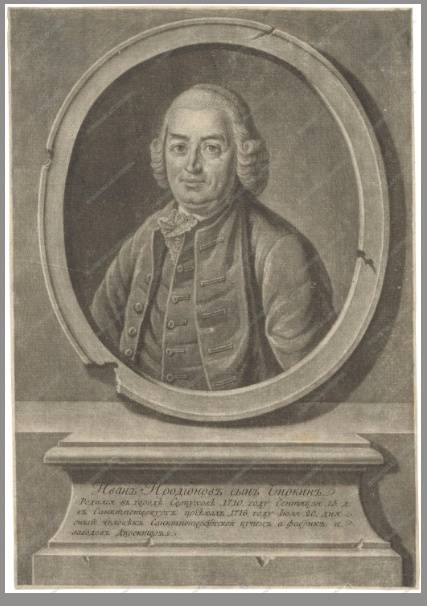
Soon Peter already "knew firmly the main foundations of Russian stories, could count on the fingers of all sovereigns from Rurik to Peter I "(Shtelin). In Russian, Peter spoke tolerably well after a year (the statement of N.I. Panin that" Peter almost did not speak Russian "is false and It serves the purpose of denigrating the deposed emperor.) But Catherine II, who loved to emphasize her patriotism at every opportunity, did not learn to speak plain Russian - a terrible German accent remained with her until the end of her life, you shouldn’t even speak about numerous mistakes in writing But she survived the murdered husband on 34 th Yes, the heir brought up in Kiel, of course, could not become Russian overnight. Catherine II didn’t become Russian, contrary to a widespread misconception. The difference between the spouses was that Peter felt like “a German in Russian service," Catherine a German who conquered Russia, hence the wild expenditures for the maintenance of her Court, and some crazy, perplexing disproportion, gifts for the “nights of love”, so that any favorite in a few days became a "cutoff". This also explains the transformation of the vast majority of the population of a foreign country for her into disempowered slaves, who had to pay for the "beautiful life" of Catherine and her favorites.
But back to Peter and his training in Russia. He preferred the humanities to the exact sciences, often asking Shtelin to replace a lesson in history, geography, or the study of the Latin language with a lesson in mathematics. But, most of all, he was attracted to fortification and artillery. According to the inventory of the heir’s library, books in German, French, Italian and English were stored in it, including the first French edition of Voltaire’s works. The book, printed in Russian, was only one, but what a! The first and only issue of the St. Petersburg scientific journal "A Brief Description of the Comments of the Academy of Sciences." There were no books in Latin, to which Peter had been abhorred from childhood.
Everyone knows about the great interest that Peter has shown since childhood to everything related to military affairs and the army. However, in St. Petersburg, the Grand Duke learned to play the violin and, according to Shtelin, could be a partner of professional musicians (although he sometimes faked in some, especially difficult, places). At least once a week large concerts were held with his participation. Memoirist A. Bolotov, who is extremely critical of Peter, also admits that he "played the violinist ... quite well and fluently." Then the heir "became the owner of a valuable collection of cremons of Cremona, Amati, Steiner and other famous masters" (Shtelin). And in 1755, Peter also opened a singing and ballet school in Oranienbaum to train Russian artists. So the stories of the enemies of the heir about the hopeless soldierhood of Pyotr Fedorovich, to put it mildly, are not entirely true
The systematic and regular training of the heir was hindered by the eccentric Elizabeth. The Empress demanded that Peter be present at all court balls and festivals (and they very often took place at night) and accompany her on trips to Moscow, Kiev, and for pilgrimage to various monasteries.
The scientific monk Simon Todorsky was appointed the mentor of Peter in Orthodoxy (he later taught the bride of the Grand Duke - the future Catherine II).
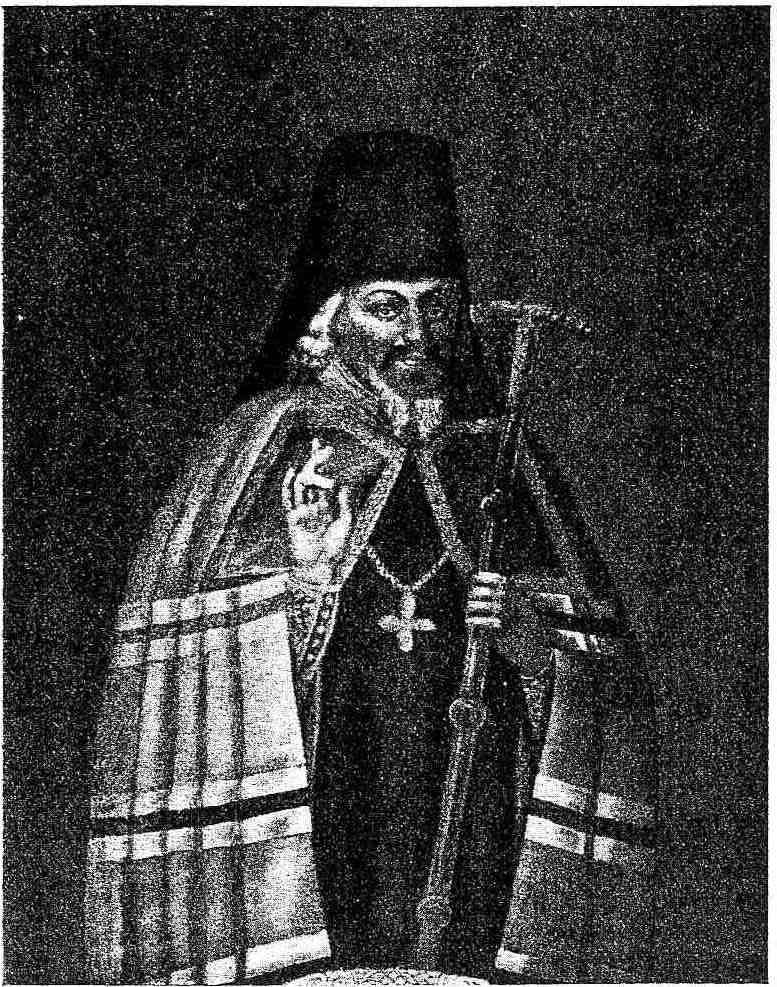
With this teacher, the heir led real, and very emotional, theological disputes - literally for every dogma, which is also evidence of a good education and high erudition of the boy. But his wife, Ekaterina Alekseevna, did not argue with the mentor - either the level of education did not allow, or she was afraid that the teacher would speak badly of her under Elizabeth.
Probably, these disputes of Peter with his spiritual mentor served as a source of gossip that the heir intends to introduce Lutheranism in Russia. We are not aware of the content of these discussions, but they claim that very similar thoughts about reforming the Orthodox Church (and not faith) were expressed at that time by M.V. Lomonosov, whom no one has accused of betraying Orthodoxy. And we know about Lomonosov’s ideas: they are stated in his letters to the favorite Elizabeth II. Shuvalov. What did Lomonosov offer? Not to limit widowers in the number of marriages, to ban tonsure of people who are still able to have children, to baptize babies not in cold but in warm water. In addition, given the difficult climate of Russia, he proposed shifting the time of Lent to late spring or early summer, as "fasts were not established for suicide by harmful foods, but to abstain from excess."
The marriage of the heir
On 7 in May 1745, Peter, who had come of age, was officially declared the sovereign Duke of Holstein. And in August of that year, the wedding of Peter and the German Princess Sofia Frederica Augusta took place. Anhalt-Zerbst, received the baptism of the Russian name Ekaterina Alekseevna.
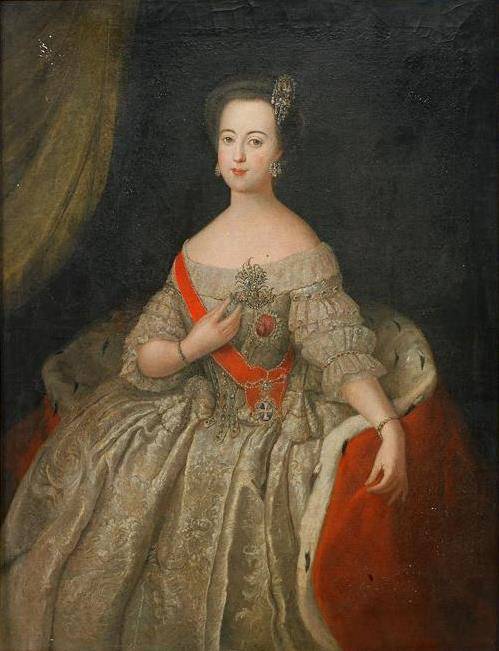
From the point of view of Elizabeth, the main advantage of this candidate was her ingenuity: the empress hoped that the grateful girl would become a good wife and obedient daughter-in-law. Having come to power as a result of a palace coup, she was terribly afraid of a new conspiracy. Therefore, Elizabeth did not trust the heir to the throne, which she removed from any public affairs and, in fact, kept under house arrest (later, Catherine II would not trust her son in the same way). And therefore, Elizabeth rejected very interesting options for marrying Peter to a French or Saxon princess (whose father was also the Polish king), and "wrote out" to him, on the recommendation of Frederick II, a seedy German woman, the daughter of one of the king’s generals. And, as we know, she was cruelly mistaken in her calculations. The future Catherine II was grateful not to her, but to Frederick II. Here is what she wrote to him on the eve of the wedding from Moscow:
So, the heir to the Russian throne, Pyotr Fedorovich, only openly admires the talents of Frederick II (and he is not alone, Frederick is a very bright personality, a strong and extraordinary person, he has many admirers throughout Europe). And his wife, at the same time, sends secret letters to Frederick II, in which she gives the obligation to "be grateful." Which is worse, worse, more dangerous?
Peter and Catherine were familiar with 1739, and even had family ties - Sofia Frederick Augustus was a second cousin to Karl Peter Ulrich. In the first version of "Notes" by Catherine, about meeting Petr in 1739 (in Germany) it is written:
About any boob and degenerate, as you see, not even a word. But, in the edited version, we read:
Let me remind you that we are talking about an 11-year-old boy. Which, according to the old Empress who edited her Notes, was already a complete alcoholic at this age.
The couple turned out to be very different people, the relationship between them did not work out. In her "Notes" Catherine did not hide that from the very beginning, she dreamed of one thing - to become the autocratic empress of Russia. Two people stood on the road to this goal - the ruling Empress Elizabeth and her nephew, the rightful heir to the throne, the husband of Catherine. Yelizaveta Petrovna had to reckon with and respect decency, but her “liveliness of character”, nevertheless, made her through Chancellor Bestuzhev enter into a risky relationship with the British envoy Williams (Elizabeth for some time was even close to sending her daughter-in-law from the country, saved her birth as an heir). But her husband Ekaterina Alekseevna, from the very beginning defiantly despised, and after the death of Elizabeth, immediately plotted, costing the emperor life. In order to justify herself and denigrate her husband in the face of descendants, Catherine created the myth of the emperor who hated everything in Russia. She presented herself as a meek sufferer, forced for many years to bear the unjust insults of an always drunken fool-husband. Which, moreover, was never a full-fledged man (it was necessary to somehow explain the presence of the "exemplary wife" of so many lovers). In particular, she claimed that, in her development, her husband was a child, and, after the wedding, she spent the night with him not in bed, but playing tin soldiers, remaining a virgin for either 5 or 9 years. However, written in French, a note by Peter addressed to Catherine came to our time:
It is written in 1746, a year after the wedding, Peter reproaches his wife for infidelity. What virginity has been preserved for 9 years!
Intimate relationships between spouses continued, at least until the beginning of the 1754 year, because before the birth of Pavel, Ekaterina became pregnant several times (these pregnancies ended in miscarriages). After the beginning of relations with Sergey Saltykov (who became the first of Catherine’s many favorites), the next pregnancy ended, finally, with the birth of her first child, Pavel (September 20 of 1754 of the year). Peter did not doubt the legality of the origin of this boy. In a letter to the king of Sweden (with which, incidentally, Count Saltykov was sent to Stockholm), announcing the birth of Paul, Peter calls him "my son." But the next child - daughter Anna, born of Catherine in 1757, he does not call “his” in a letter to the same addressee.
About the birth of Anna, Peter responded as follows:
Thus, Peter was sure that Paul was his son. But he was very doubtful that he was Anna's father.
The new title of Pavel granted to him by Emperor Peter III also speaks volumes: he became not just the Grand Duke, but the first prince in Russia - in France this title corresponded to “dauphin”, in Sweden - “crown prince”. Recall that, according to the law established by Peter I, the emperor was free to appoint a successor himself, not paying attention to the degree of relationship. Peter III indicated in advance to his subjects who would be their next emperor.
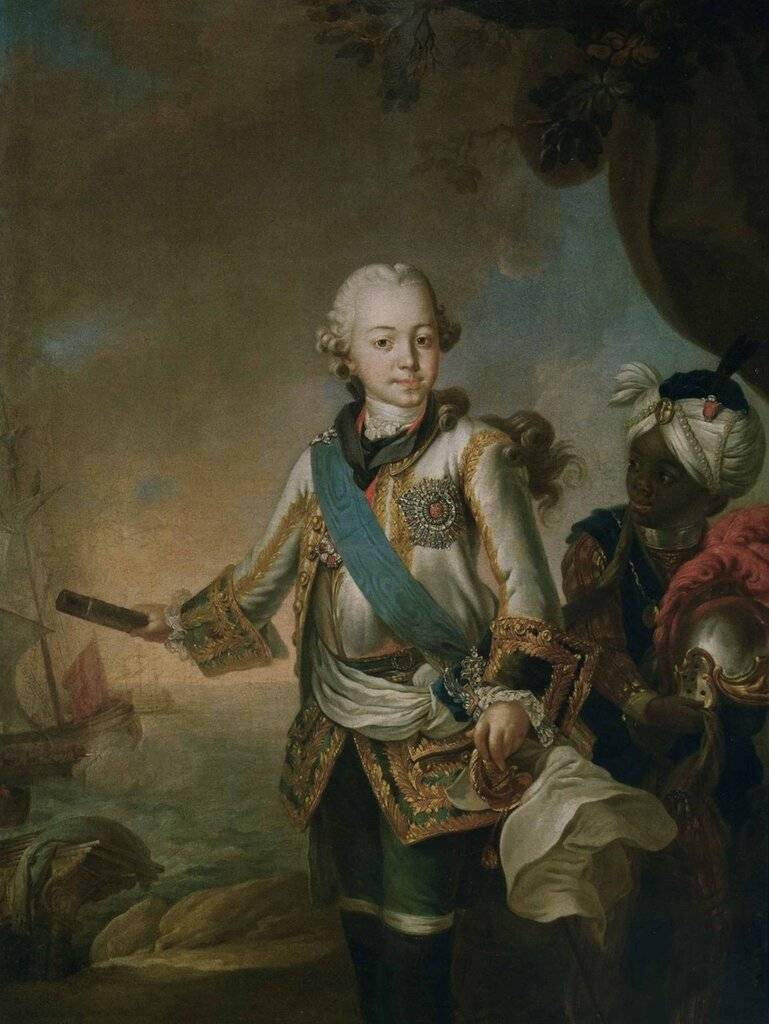
Catherine did not hide these pregnancies. But the pregnancy from Grigory Orlov hid it from everyone, and the birth was secret. This suggests that by this time she had not had intimacy with her husband for a long time, and, therefore, it was not possible to marry a child for her son Peter.
So, Peter Fedorovich himself had no doubts about the origin of Paul. But the court gossips attributed the birth of the first-born of the grand-ducal family to the “love of zeal” of Count Sergei Saltykov (and Catherine in her Notes gives very serious reasons to think about it).
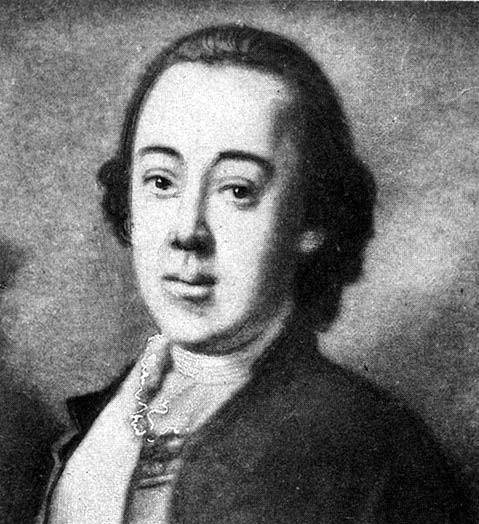
Pikul in the novel "Feather and Sword" mistakenly calls the father of Pavel Stanislav Augustus Ponyatovsky, who took a place in the bed of the Grand Duchess later - in 1755.
Apparently, Anna became the daughter of Poniatowski (she died at the age of two). And Peter at that time was carried away by the maid of honor of Catherine - Elizaveta Vorontsova, who was younger than him by 11 years.
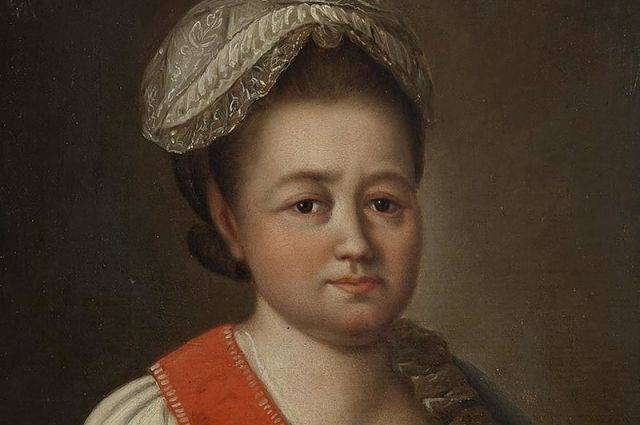
Elizaveta Petrovna and her relationship with the heir
As for Elizabeth, who herself had called Peter to Russia, she immediately disliked her nephew, brought up in a foreign German environment. And this was felt by the court sneaks, who, in order to please the empress, told all kinds of nasty things about the heir. Elizabeth listened to these gossip quite favorably, and the heir to the Russian throne unexpectedly turned into an outcast in the royal palace, and maintaining a close relationship with him was dangerous for her career.
Peter did not like his aunt (and there was a reason) and despised her greedy favorites, insignificant court sneaks, ministers, whose venality was known to everyone. Elizabeth, her favorites, toadies and corrupt ministers claimed that the heir does not love and despises Russia. A formula that is very familiar and convenient for the rulers of any country, isn't it? If you don’t like “His Majesty” and the many “Highlands” and “Excellencies” who are wandering around him, it means not a patriot, and a citizen is worthless.
Unlike his wife Catherine, who, if necessary, could be flattering, obedient and obedient, Peter did not consider it necessary to engage in pretense. He, the only one, refused to dress up as a woman at Elizabeth's strange balls, where men were supposed to be in women's dresses, and ladies had to wear men's suits. Participation for the courtiers was mandatory, for failure to appear, they paid a large fine. Catherine, with pleasure, took part in these masquerades, as she believed that she was wearing a military uniform.
Suffering from a lack of love and attention, Peter yearned for his native Holstein, inadvertently expressing regrets about his fate, which had thrown him to a distant land where he was a stranger and no one needed. The court spies informed the empress about these moods of the heir, adding a lot from themselves. A vivid example of such slander is the memoirs of A.T. Bolotov, who writes that Peter, allegedly kneeling in front of the portrait of Frederick II, called him his sovereign. This lie is replicated in many historical works and near-historical novels. But Bolotov’s innocent reservation that he himself didn’t see anything like it, just “talk about it”, remains “behind the scenes”.
Chancellor of the Empire A.P. Bestuzhev actively traded the interests of Russia, taking money from the British and Austrians (involving Catherine in her dirty business). To divert attention from himself and his ward, he, at the same time
As a result of the constant denunciations of such "well-wishers," Elizabeth became increasingly hardened against her nephew. As we already said, he was in fact under "house arrest", not having the right to move freely - literally everyone had to ask permission from a suspicious aunt. Here, for example, an excerpt from the letter of the Grand Duke to the favorite of Elizabeth II. Shuvalov:
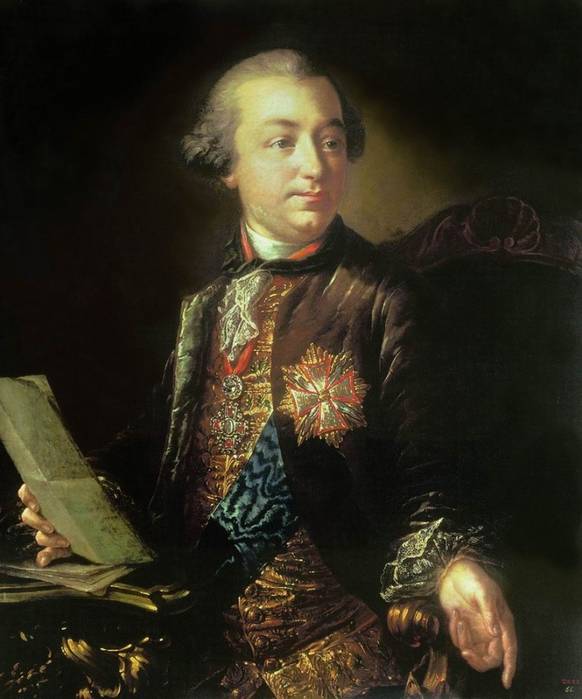
At the same time, Elizabeth also dared to accuse him of insufficient love and ingratitude. Naturally, Peter, whenever possible, avoided communicating with such a “benefactor” and her sneaks, becoming more and more distant from the “big” court, which only aggravated the situation. But the Grand Duke established good relations with the “attendants”, which his aunt didn’t like, who instructed the Obergofmeister of the court’s heir NN Choglakov to stop “games with rangers and soldiers ... all kinds of jokes with pages, lackeys and other worthless people " At the same time, Elizabeth herself freely communicated with singers, maids, breakers, lackeys and soldiers, and her addiction to English beer "was condemned as a manifestation of the meanness of origin." Apparently, deep down, she knew that she was behaving inappropriately, but did not want to change her habits. And, in compensation, she demanded that Peter become the "real" emperor.
After the death of Choglokov, it was entrusted not to anyone to look after the heir, but to the head of the Secret Chancellery, A.I. Shuvalov. Elizabeth demanded from him "reports on the behavior of the Grand Duke; she was enraged to learn that he was absent from Pyotr Fedorovich when he carried out maneuvers in the vicinity of Oranienbaum with his detachment."
It is curious that the other "wards" A.I. Shuvalov, about whom he also sent reports to Elizabeth, was at that time the "Shlisselburg Prisoner" - the legitimate Russian emperor John Antonovich, who was now ordered to call everywhere Grigory. Very significant, isn't it?
The Empress was not afraid in vain: there is evidence that far from all were delighted with the endless balls and more and more new dresses of "merry Elizabeth." The country did not have an independent foreign policy, affairs fell into disarray and decline, people were impoverished, and many furtively began to glance towards the heir, hoping with hope for a new reign. So, the soldiers of the Preobrazhensky Regiment (whose colonel and chief was the Empress herself) once declared to Peter:
And such cases, which were immediately reported to the empress, were not isolated. So Elizabeth’s suspicions were not unfounded, she just looked in the wrong direction - she was afraid of a conspiracy from the side of Peter, who was always loyal to her, losing sight of the schemer Catherine.
Bestuzhev suggested that Catherine become her official co-ruler of Peter (but she wanted more). A lieutenant colonel of the life-cuirassier regiment M.I. In December 1761, Dashkov suggested that she remove from power both the seriously ill Elizabeth and her heir, Peter (but Catherine was pregnant at that time from Grigory Orlov, and did not dare).
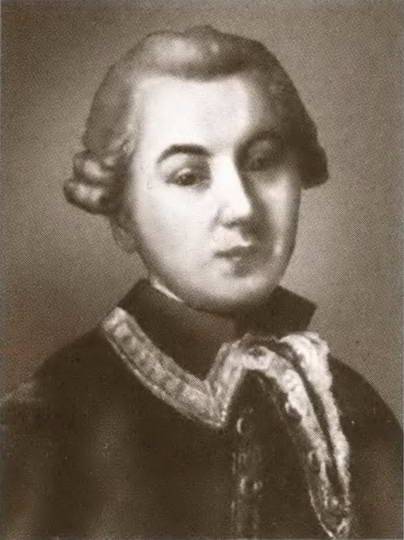
Only once, after Bestuzhev’s resignation and arrest, did the clouds gather over Catherine’s head. But he understood the old cunning: for "simple theft", of course, they would not pat on the head, but for "politics" - right away, they would drag him to the Secret Chancellery, on the rack. And then, if she survives, she will not die from torture - to hard labor. And so, during interrogations about Catherine, he kept silent.
The empress began to treat the heir especially badly after 1755. At that time, she repeatedly publicly spoke in hindsight about him, including with foreign diplomats. Elizabeth jealously dismissed the heir from all state affairs; Petr Fedorovich’s participation in the Conference at the Highest Court (advisory body) created in 1756 was purely formal in nature, no one listened to his opinion; in 1757, he left her composition. The only case when Peter received at least some independent position was the appointment of his Director General of the Ground Gentry Corps (in February 1759). The position for a figure of this level is low, but the activity of Pyotr Fedorovich in this post proves that gossip about his mental inferiority has no basis. Under the leadership of Peter, the barracks of the building were expanded and reconstructed (now 5-6 people began to live in one room, instead of the previous 10), the food of the pupils and their uniforms were improved, a printing house was organized in which the books necessary for study began to be printed - in Russian, German and French.
On 25 of December 1761, Empress Elizabeth died, and Peter, after almost twenty years of rather humiliating life in Russia, finally was able to begin to realize his long-planned plans. The reign of Peter III, not the "obscene" world with Prussia and the 192 decrees and laws published by him, will be discussed in the next article.
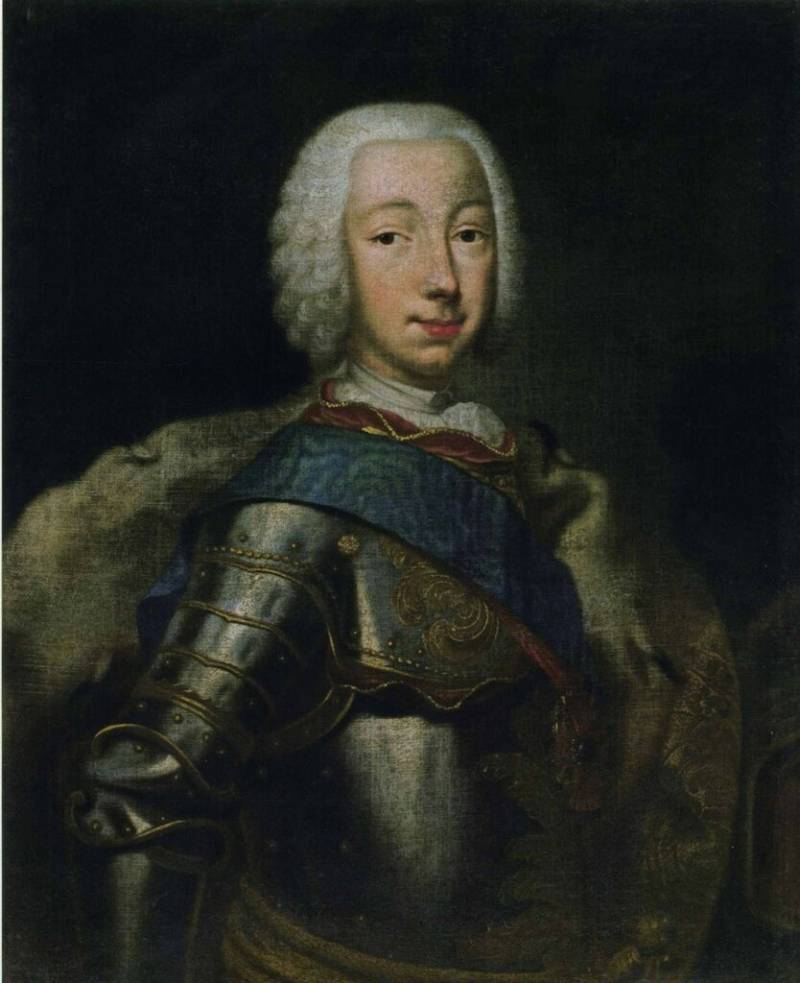
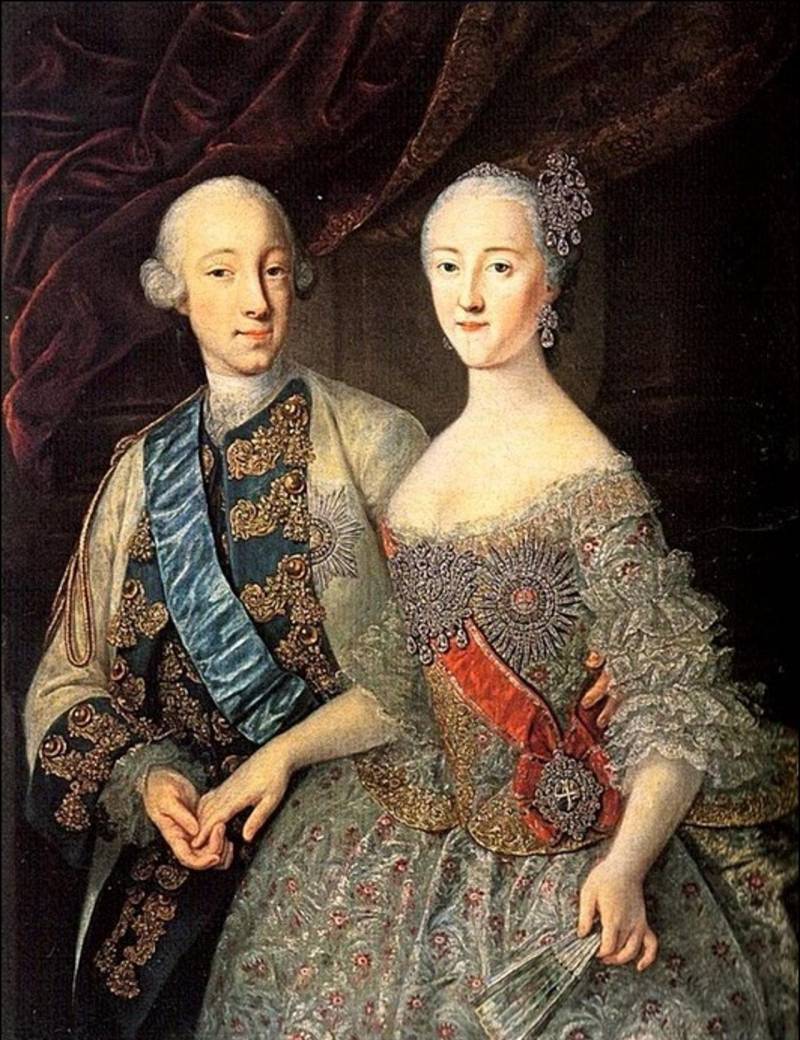
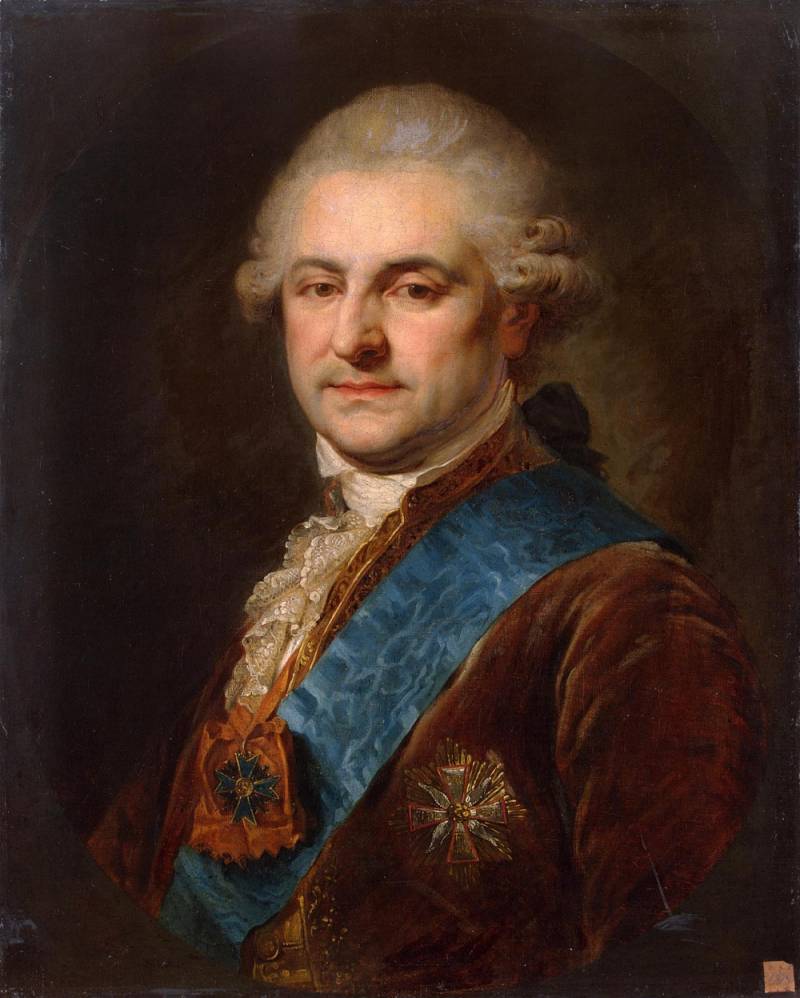
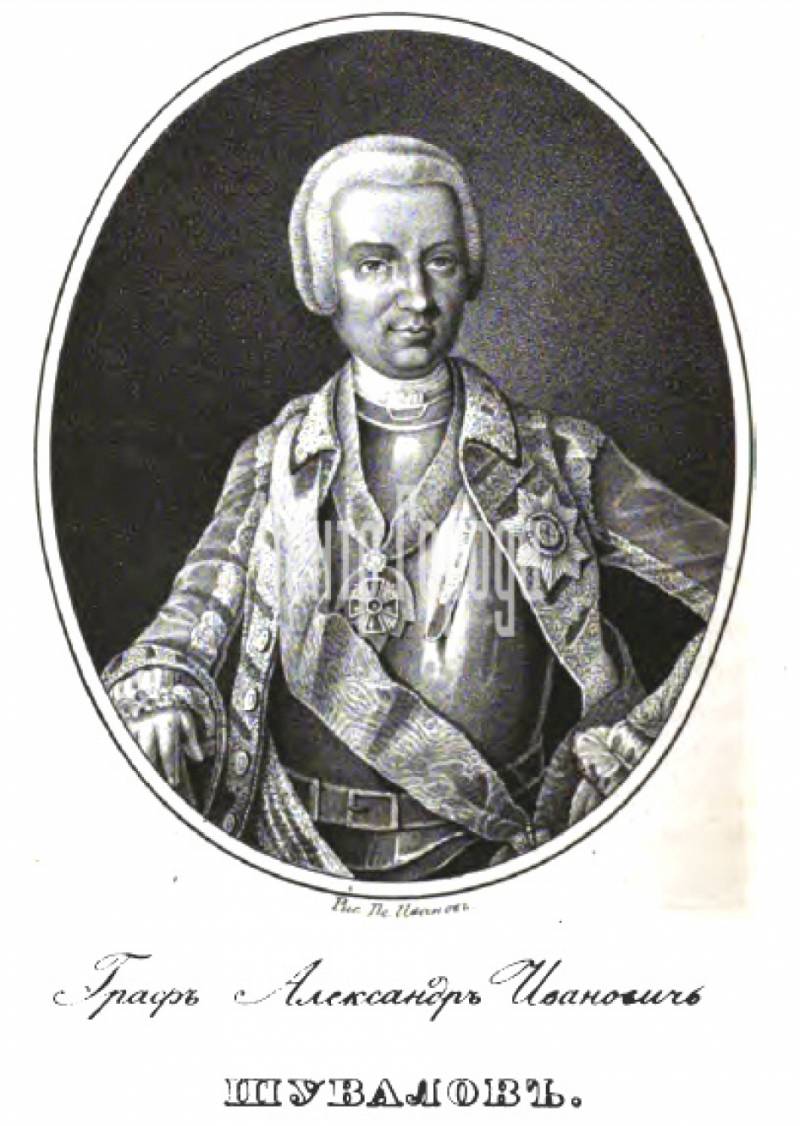
Information